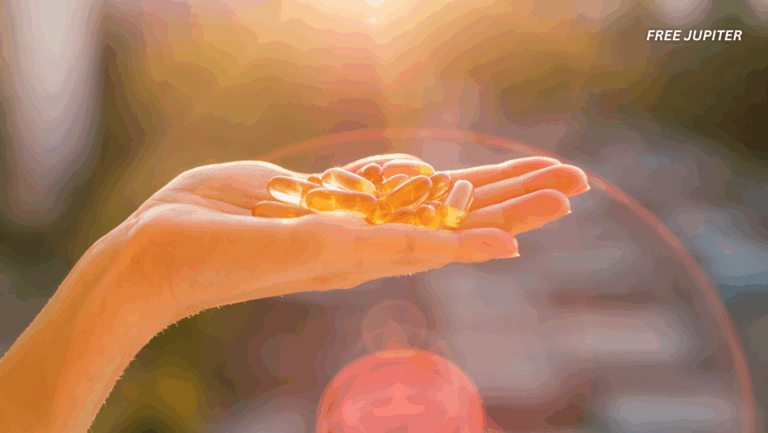In recent years, supplements have gone from niche health trend to household staple. These days, more than half of American adults pop some kind of pill, powder, or gummy in hopes of boosting mood, metabolism, muscle mass—or just general well-being. TikTok influencers swear by berberine for a faster metabolism, celebrities claim sea moss helps their gut, and biohackers swear curcumin is their secret to eternal youth.
But here’s the twist: while supplements may look like the quick-fix heroes of health, they’re increasingly being linked to liver damage—and not just the mild kind. Over the past few decades, there’s been a noticeable rise in severe liver issues, including liver failure, tied directly to supplements. And that’s not all: fatigue, stomach problems, mood swings, kidney stones, hair loss, and high blood pressure are also making surprise appearances in the supplement aftermath.
So what’s behind this health hiccup disguised as wellness? Three major culprits: toxic ingredients, risky interactions with other meds, and what experts call “megadosing”—taking way more than what’s considered safe.
A Pill for Every Problem?
“Everyone wants a quick fix,” says Dr. JoAnn Manson, a leading physician and professor at Harvard Medical School. “People are chasing the one magic pill to slow aging or prevent disease.”
It’s no wonder then that 84% of supplement users genuinely believe these products are safe and effective. The only problem? Most of the tens of thousands of supplements on store shelves have never been properly tested for either.
“It’s a bit of a free-for-all out there,” Manson warns. In other words: consumer, proceed with caution.
Read more: Doctor Beats Cancer Using Treatment He Helped Invent—He’s Now Been Cancer-Free For Over A Year
Nature’s Medicine Cabinet: Not Always Harmless
Humans have turned to herbs, roots, minerals, and other natural remedies for thousands of years. And while there’s real value in some of these time-tested treatments, today’s supplement industry is a whole new beast.
These days, you can find ancient remedies repackaged as modern-day miracle cures in the form of pills, powders, gummies, drinks—you name it. They’re splashed across your social media feed and sold at your local drugstore, often marketed as solutions to problems your doctor might’ve overlooked.
Why the sudden boom? According to Dr. Dariush Mozaffarian, a cardiologist and nutrition expert, it’s because many people feel failed by the traditional healthcare system. More than half of patients say their symptoms are ignored or brushed off. So they turn to “do-it-yourself” medicine—often with the help of supplements.
And yes, in certain situations, supplements can be helpful. For example:
- Folic acid can prevent birth defects during pregnancy.
- B12 is important for older adults.
- Omega-3s might support heart health.
- Probiotics can ease digestive issues.
These uses are backed by studies. But beyond these cases, many supplement claims don’t hold much scientific weight. “There’s no strong evidence that herbal supplements are essential for general health,” says Dr. Marwan Ghabril, a liver expert from Indiana University.
In short? For most people, taking common supplements in recommended doses won’t hurt—but they might not help either. As Mozaffarian puts it, “You’ll mostly just end up with expensive urine.”
When Supplements Become Dangerous
The booming supplement industry isn’t just filling bathroom cabinets—it’s also filling hospital beds. In the U.S., around 20% of all liver injuries caused by drugs now come from herbal and dietary supplements. Some studies say it could be as high as 43%. Even more alarming? The number of people who needed liver transplants due to supplements jumped sevenfold between 1995 and 2020.
Recently, doctors have reported more cases of patients coming in with yellowing eyes, stomach pain, and extreme fatigue—classic signs of liver failure. And it wasn’t from sketchy, off-brand products either. These effects were linked to well-known supplements, including:
- Green tea extract (often in weight-loss products)
- Bodybuilding supplements (sometimes laced with hidden steroids)
- Multi-ingredient pills for everything from hair growth to mood boosting
In 2024, researchers reported that 15 million Americans were taking supplements containing ingredients known to potentially harm the liver: turmeric, ashwagandha, black cohosh, garcinia cambogia, red yeast rice—and yes, green tea.
Read more: Scientists Use Patient’s Own Eye Stem Cells to Restore Vision in Groundbreaking Study
Dr. Ghabril advises steering clear of anything labeled as “herbal” or “botanical,” especially if it claims to be a cure-all. “Basic vitamins are generally fine,” he says. “But niacin, for instance, can damage the liver in high doses.”
And here’s another curveball: just because it’s natural doesn’t mean it’s safe. Some supplements can mess with bile production or trigger inflammation. And when it comes to products packed with multiple ingredients, it’s hard for scientists to pinpoint what exactly is causing the harm.
The Dirty Secrets of the Supplement Industry
Not only can some supplements be dangerous, but you also might not be getting what’s actually on the label.
Manufacturers are known to swap out expensive ingredients for cheaper ones, sometimes without updating the label. Even worse, some supplements have been found to contain toxic heavy metals (like lead or arsenic), bacteria, yeast, synthetic drugs—even mold. In elderly individuals or those with weak immune systems, these contaminants can cause serious health issues, including dementia, brittle bones, infections, or appendicitis.
And mixing supplements—especially in large amounts—can lead to unintentional overdoses or dangerous drug interactions. Which brings us to…
Megadosing: More Is Not Better
Some people think, “If a little is good, a lot must be great.” But when it comes to supplements, this mindset can backfire.
“Higher doesn’t mean better,” warns Mozaffarian.
Megadosing—taking well above the recommended daily dose—can overload your system, especially with fat-soluble vitamins that build up in your body. This can cause side effects like:
- Stomach cramps
- Headaches
- Heart palpitations
- Insomnia
Women may be more vulnerable due to differences in body size and metabolism.
To make things even trickier, reactions can vary based on your genetics. One person might handle green tea extract just fine. Another could end up in the ER.
“The same way prescription drugs can cause liver damage, so can supplements,” says Ghabril. “We need better regulation and transparency for the sake of public health.”
Read more: Breakthrough: The FDA Has Just Approved A New Injection to Prevent HIV
So, What Can You Do?
Unlike prescription drugs, supplements don’t have to go through strict testing before hitting the shelves. The FDA doesn’t require proof of safety or effectiveness, which means consumers are often flying blind.
“It’s frustrating,” says Mozaffarian. “Companies can make millions selling these products without being required to prove they work.”
So how can you protect yourself?
- Talk to your doctor before starting any supplement.
- Buy from reputable brands that offer third-party testing.
- Use the NIH’s Office of Dietary Supplements or LiverTox database for trustworthy information.
- Avoid megadosing or taking multiple supplements at once.
- Be skeptical of any product that claims to be a miracle.
And above all, remember this: supplements are not a replacement for a healthy lifestyle. “A balanced diet, regular exercise, quality sleep, and reduced stress—that’s the real magic,” says Mozaffarian. “Get your vitamins from food whenever you can.”
Featured image: Freepik.
Friendly Note: FreeJupiter.com shares general information for curious minds. Please fact-check all claims and double-check health info with a qualified professional. 🌱










